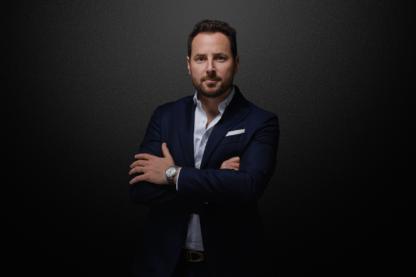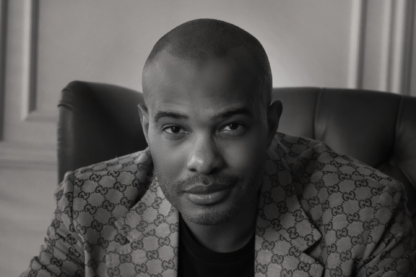In this exclusive conversation, Alexander Chetchikov, President of the World Luxury Chamber of Commerce, sits down with luxury strategist and industry insider Alexandre Ferragu to dissect the evolving landscape of high-end business. With 2024 rattling the foundations of once-untouchable brands, Ferragu pulls no punches, offering bold takes on the rise of Hermès, the faltering strategy at Kering, and what diversification really means in luxury. This interview isn’t just about where luxury is headed—it’s about what it must do to survive.
Alexander Chetchikov: Alexandre, in your opinion, what is the state of the luxury sector today?
Alexandre Ferragu: We have seen hesitations in 2024 and ongoing in early 2025. It seems that at the moment, only Hermès is seeing tremendous results. The post-COVID growth was extremely strong and probably too strong. Brands might have overlooked many aspects, such as brand value, product quality, and customer intimacy. Studies show that over the last few years, sales revenue growth was mostly due to price increases and not higher volume sales.
Studies show that consumers are now discussing the real value of luxury brands and the fact that they might be overpriced.
Many questions arise on value for money, logo visibility, and brand extensions.
AC: How would you assess Kering’s current position in the luxury market?
AF: Have you ever heard of “don’t put all your eggs in one basket”? Quite frankly, this is concerning, it seems that the group is stuck on repeating the same strategy for their brands. Balenciaga was pumped up for a few years using debatable strong pieces attracting GenZ, but their despicable 2022 communication did cost them a lot of customers… They should have taken a stand and fired all the people responsible! Now they placed Demna Gvasalia at the helm of Gucci, destroying around €3 billion in company valuation in the process. It shows that investors are really concerned about the group’s strategy.
Bottega Veneta and Saint Laurent are amazing brands that have great growth potential. They need to find their loyal customer base and not consumers who hop on brands looking for the hype, which is what Gucci and Balenciaga’s customers do.
AC: What makes Hermes unique compared to the rest of the industry? Why do you think the brand so successful?
AF: I think steady growth, craftsmanship, and customer intimacy are the keys for Hermès. Any brand needs to rely on bedrock customers to maintain steady growth, and Hermès is the best at it. Its customer base is strong, reliable, and loyal. They have increased their prices reflecting inflation, not taking advantage of the hype, and still providing the best quality possible. Looking at their Cost of Goods Sold, they comparatively spend more than any other large competitor on production. Customers are getting their money’s worth, it brings real value to customers.
AC: Luxury brands are diversifying. What are your thoughts on that?
AF: Some will argue that diversification leads to a loss of the core value of the brands. But would Louis Vuitton or Hermès still be around if they had stuck to their original products? Diversification is a great tool to enhance customer relationships, bringing customers to the brand. Hospitality is where it is all happening today, Bulgari is doing a great job, and Louis Vuitton will do amazing. Diversification needs to be done well, in line with the brand’s values. It’s also a way to grow for brands as they are increasing the share of wallet of their customers. We see that people are looking for brands over products, and this is a great way to respond to this.
AC: Do you believe the luxury sector has overextended itself?
AF: It depends on people’s vision of life: Consumerism, love for well-made products, love for exclusivity, love for emotions… Brands are extremely big today, but there is room for growth, for a larger customer base if needed. Around 2% of the customers represent 45% of the revenues of the sector. Relying on a very tiny customer base is dangerous. Should luxury be made more affordable? Well, it is less luxurious if it becomes too affordable, so brands must tune in to find the sweet spot. I believe they will have no choice but to introduce new entry-level products. The best-performing categories for 2024 are entry-level prices.
AC: Where do you see the luxury industry heading next?
AF: I think going back to its roots will help the sector. Too many customers felt that brands took advantage of them and started to buy less as prices became too high compared to what they were a few years ago. Bringing better value for money is key.
Be the best at manufacturing, and spend perhaps less on very costly retail.
Become more classy, less streetwear.
It might be the right time for groups such as LVMH to acquire other brands/groups at a discount. Kering would be a great target, they own amazing brands that they mismanaged.
Thank you, Alexandre!
As Alexandre Ferragu concludes this incisive interview, one thing becomes clear—luxury can no longer afford to coast on its name. With customer expectations evolving and authenticity under the spotlight, the industry must recalibrate. Whether through a return to craftsmanship, smarter diversification, or bold mergers, the future belongs to the brands that remember what made them desirable in the first place. With Alexander Chetchikov steering the conversation, this exclusive insight lays bare the truth: it’s time for luxury to grow up.
To gain more insights into the luxury industry, visit our expert articles and interviews: https://worldluxurychamber.com/category/expert-articles-interviews/





